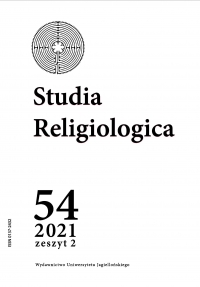Filozofia, rytuał i performatywność w starożytnej myśli indyjskiej na przykładzie upaniszady Ćhandogia 6.2.4
Philosophy, ritual and performativity in ancient Indian thought on the example of the Chandogia Upanishad 6.2.4
Author(s): Joanna JurewiczSubject(s): Theology and Religion
Published by: Wydawnictwo Uniwersytetu Jagiellońskiego
Keywords: Indian philosophy; Upaniṣads; Brāhmaṇas; ritual; embodied cognition; performative utterances
Summary/Abstract: The paper discusses cosmogony presented by Uddālaka Āruṇi attested in the Chāndogya Upaniṣad (6.1-6), according to which world forms arise by giving them a name. I argue that the experience that motivates the thinking of Uddālaka is ritual, the essence of which is to give people and objects a name, thanks to which their status dramatically changes for the duration of the ritual. An analysis of a selected passage of the king’s coronation described in the Śatapatha Brāhmaṇa (5.3.4) reveals the fundamental importance of the verses uttered during preparation of the water for the consecration. The reconstruction of an experience that influences philosophical thought makes it possible to see its coherence and depth, and the fact that this experience is a ritual, a common experience of humanity, enables it to be better understood by those who grew up in other philosophical traditions as well.
Journal: Studia Religiologica. Zeszyty Naukowe Uniwersytetu Jagiellońskiego
- Issue Year: 54/2021
- Issue No: 2
- Page Range: 131-146
- Page Count: 16
- Language: Polish

